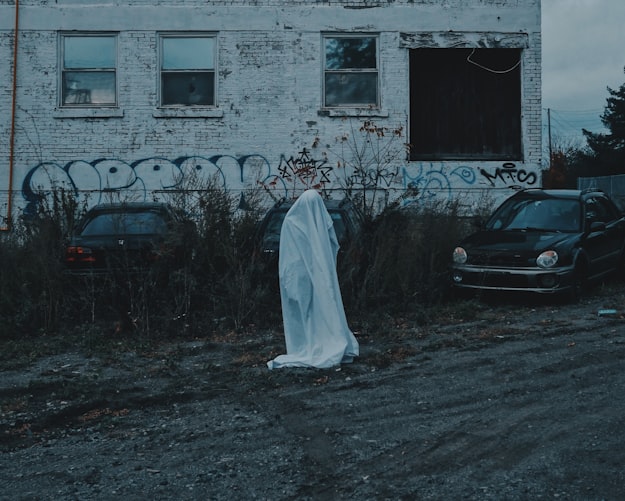 |
| Photo by Patrick Tomasso. |
Q: What are you afraid of?
A: Everything.
Okay, that might be a little dramatic, but I have lived with a lot of fear in my life. Right now, my cat is curled up on my lap and feeling too light and I am afraid she is dying and I will not have her to love anymore.
I just listened to the FEAROLOGY episode(s - part one and two) of the podcast Ologies and listening to them was like getting one side of a therapy session and I NEED to share and unpack them with you.
First up is a question: what are you afraid of?
We tend to avoid thinking about our fears, for the obvious reasons of them being scary and being scared is unpleasant and fear is usually trying to PROTECT us from something, so why would we poke at it? But writing out a list of our fears, from deep to trivial, can reveal so much about who we are and what our deepest desires are. Then, once you've seen your fears laid out in front of you, you even have the choice to pick one and face it. (If you're into that kind of wildness.)
I want to do this, but I am (go figure) scared. I am afraid for a lot of reasons, but I think deep down I am afraid of what looking at my fears will reveal about me: that I'm really weak and pathetic. That any strength or competence I have is a shell over a lame, loser underbelly. Which, honestly, is probably kind of true, but it's true of all of us. We all have our strong, competent exoskeleton that gets us through life and a bucket of mush for insides.
So if this is true for everyone, and if I deeply believe that your life can improve by studying and understanding your own bucket of mush, then why do I keep avoiding looking at the fear part of mine? Are my fears special? Am I going to somehow be extra pathetic? Am I the Award-Winningly Most Pathetic Mush-Bucket-Inside-Exoskeleton of them all? Is it even possible that our deepest fears can be pathetic? They must all tie into basic human needs - in fact, according to Poppenroth, our non-survival-based fears are either based on the fear of being out of control or the fear of not being enough. (That one hit me HARD, you guys. I paused the podcast to sit with it for a moment.)
By the by, the survival/non-survival-based categorization? Poppenroth calls them Factual and Fictional fears. Basically, factual fears are things that are physically happening that threaten our safety or survival in some way. Fictional fears come from the stories we tell ourselves in our heads when we imagine being alone forever or losing our job or that everybody is looking at us and somehow that means something bad will happen.
For people living in safe homes and parts of the world, our fears are pretty much all fictional. That doesn't mean they aren't important (fiction matters! Stories are powerful.), what it does mean is that we can face them and stay alive and maybe even not be controlled by them anymore.
Okay, guys, I am going to do it, no later than this weekend. You want to do it too? We can come back and talk about it.
Here's what I will do: I will make a list of the things I am afraid of; I will spend some time looking that list right in the face and asking myself what the root of each fear is; I will understand myself better and also maybe (no promises) pick one to face down in mental combat.
I will let you know how it goes next week, and also share more from the Fearology episode, because there is so much more to dig into!
This post is PART ONE. Read PART TWO to learn about how to feel better and the cultural rebranding of fear as stress here.
Sign up for my email newsletter for a bi-weekly digest and bonus content!

No comments:
Post a Comment